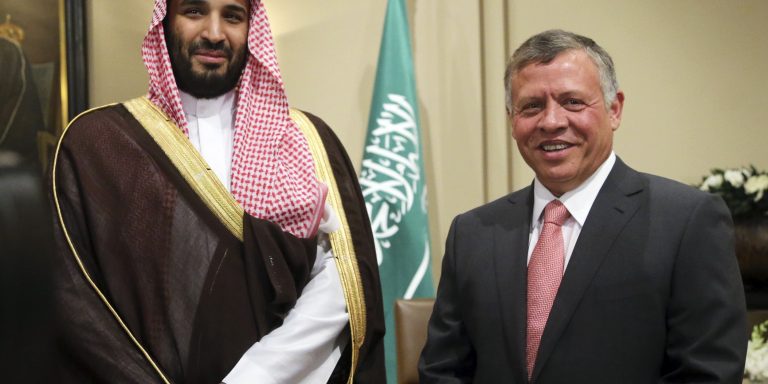INTELBRIEF
January 18, 2018
IntelBrief: Tensions Between Two Key U.S. MidEast Allies

- A more aggressive regional foreign policy by Saudi Arabia is having a negative effect on its relations with Jordan.
- Saudi Arabia, along with the U.S., has long been a vital financial supporter of Jordan, a country on the frontlines of several long-running conflicts.
- The tacit Saudi support for the U.S. decision to recognize Jerusalem as the capital of Israel is at sharp odds with the position taken by Jordan, which has custodial duties over parts of the contested city.
- The U.S. must continue to coordinate and work closely with Jordan on military and counterterrorism issues.
When Jordan’s King Abdullah II removed Prince Faisal bin Hussein and Prince Ali bin Hussein, two of his brothers, and Prince Talal bin Muhammad, a cousin, from their positions in the Royal Jordanian Army, it set off immense speculation and intrigue about possible backchannel communications between the dismissed royal siblings and Saudi Arabia. The King quickly denounced the speculation as rumor, saying the moves were planned retirements. Some regional papers continued to state the three men had been arrested after Jordan’s intelligence service (the General Intelligence Directorate, or GID), told the King about illegal communications between the three relatives and both Mohammad bin Salman, the crown prince and de facto ruler of Saudi Arabia, and Mohammad bin Zayed, the crown prince of Abu Dhabi.
The speculation underlies the very real fear of growing tensions between Saudi Arabia and Jordan. Riyadh has long been a vital financial supporter of Amman, providing billions in aid over the last decade. In 2011, the Saudi-led Gulf Cooperation Council (GCC) provided for a $5 billion grant to Jordan at a time of serious economic concern in the Hashemite Kingdom. Jordan, a resource-poor country, is always on the verge of insolvency; for example, their debt-to-GDP ratio in 2015 was an unsustainable 90%. Jordan is further plagued by regional crises, including conflicts on its borders with Syria and Iraq and the Israeli-Palestinian conflict. While Saudi Arabia has significant leverage over Jordan considering the financial support it provides, the United States is dramatically increasing its own financial support to Amman. In 2017, the U.S. provided $1.3 billion to Jordan, a significant amount of which was in the form of military assistance, and help with the cost of Syrian refugees flooding into the country.
The Israeli-Palestinian conflict has brought about the current rise in tensions between Amman and Riyadh. The December 2017 announcement by President Trump, in which the U.S. officially recognized Jerusalem as the capital of Israel, was in direct contradiction to decades of policy and international agreements, which held that the final status of Jerusalem must be decided between Israel and an independent Palestinian state. A 1994 peace treaty signed between Jordan and Israel confirmed Jordan’s role as custodian and protector of Muslim and Christian sites in east Jerusalem, including the Temple Mount. The apparent Saudi acceptance of President Trump’s decision, notable by Riyadh’s silence on an issue it would previously have played a leading role in denouncing, has put Amman and Riyadh at serious odds. There is even speculation that Saudi Arabia supports changing Jordan’s long-standing role as custodian; it is difficult to overstate how much Jordan values what it sees as its historic and religious role in Jerusalem.
As the regional policies of Saudi Arabia become increasingly framed through the lens of ‘Saudi Arabia versus Iran,’ small countries like Jordan might find themselves backed into a corner, needing financial support but objecting to Saudi actions like their role in the catastrophic war in Yemen, or meddling in the internal politics of Lebanon. On January 21, U.S. Vice President Pence will meet with King Abdullah in Amman, a meeting designed to help ease tensions over the U.S. announcement about Jerusalem and Washington’s public support for Saudi actions. Jordan remains a pivotal partner for the U.S. in the Middle East. The U.S. must continue to coordinate and work closely with Jordan on military and counterterrorism issues within an increasingly complex web of relationships and power dynamics.
For tailored research and analysis, please contact: info@thesoufancenter.org
[video width="960" height="540" mp4="https://thesoufancenter.org/wp-content/uploads/2018/01/Final-Edit-1-112.mp4" poster="https://thesoufancenter.org/wp-content/uploads/2018/01/AP_59893547475.jpg"][/video]